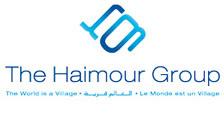The recent Kuwait International Conference for the Reconstruction of Iraq presents a remarkable turning point in Iraq’s future-an exceptional opportunity that carries with it a potential for a promising future for Iraq and the region at large.
It was disconcerting that some media outlets got it wrong and projected a sense of pessimism around the conference. The New York Times article published on Feb. 13th titled “Iraq Wants $88 Billion for Rebuilding. Allies Offer a Fraction of That”, which has also been circulating in Arabic social media, failed to reflect on the big picture and swiftly drew conclusions before the final announcements were made, when in fact, allies committed a remarkable $30 billion for projects through loans, investment and sovereign guarantees.
First, the $30 billion commitment is a significant figure amid international donor fatigue due to growing number of war ravished countries in dire need for support. This figure far exceeded commitments raised at other donor conferences. What the media failed to portray is that Iraq did not go to this conference asking the world for $88.25 billion. This figure was assessed by the World Bank, the UN, the Iraqi Ministry of Planning and local provincial governments as the total cost for the country’s reconstruction and not as the goal of the conference. In fact, governments’ stepping up their support during the conference reflects a sense of trust and boosts a sense of optimism in Iraq’s future.
Second, the huge turnout of private sector participation in the conference represents the fervor among international companies to vigorously invest in Iraq’s economy. The 2,000 companies that flocked from all over the world prove that despite all the challenges of doing business in Iraq, the country remains a prime investment destination for major companies and investors. The role of the private sector in the country’s reconstruction and economic development cannot be overstated. The head of the World Bank Mr. Jim Kim summed it up well: “We stand ready to help Iraq bring in private investment wherever possible, because Iraq’s reconstruction can only be successful if it is led by the private sector.”
Third, the “Invest in Iraq” day sends the message that Iraq is now open for business. The government has taken significant strides in implementing reforms and introducing changes to diversify the economy and to create a business-friendly environment to ease the investment process in the country. While there are still challenges to be dealt with, there is an enormous room for more sustainable practices through promoting local industries, building workforce skills and encouraging innovation and entrepreneurship.
Fourth, on a human level, the conference brought people together. This cross-border collaboration was another factor contributing to the positive outlook of the Conference -friendships forged, ideas exchanged, and internationals enthused to partner up in laying out a strong foundation for Iraq’s social and economic development.
As for the State of Kuwait, the Conference was exceptionally well-organized. The Kuwaitis were incredibly hospitable and had an army of staff, volunteers and security managing every little detail. Some glitches, if there were any, are understandable due to the magnitude of the conference.
While gains and prospects are not immediate, the Conference sowed the seeds of optimism for Iraq’s future. The trust, support and commitment of the global and regional community coupled with the capabilities and the grit of the Iraqi people will morph into something big- it will move Iraq forward to a brighter and a prosperous future.
